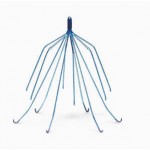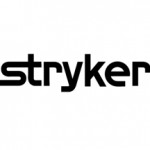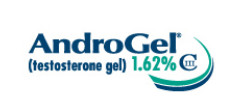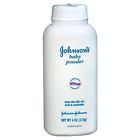IVC Filters
This litigation involves complications with inferior venous cava (IVC) filters. IVC filters are small devices implanted into the inferior vena cava to prevent a pulmonary embolism by “catching” blood clots when they break free from inside the deep veins of the body and travel toward the lungs. These IVC filters have been linked to a large number of cases where the filters failed due to the “legs” failing to properly function. These “legs” or struts, expand inside the vein to hold the filter in place. However, problems arise when the legs break or otherwise fail to keep the device in place by allowing the filter to move to other parts of the body, which can lead to piercing the inferior vena cava or other vital organs.
|
Potential Claimant:
Had an IVC filter implanted and the device subsequently failed by perforating the vena cava and causing injuries to the surrounding tissue, intestines, spine, vertebrae, and/or arteries.
MDL Status:
- Cook Medical, Inc. is consolidated in the Southern District of Indiana before Judge Young in MDL 2570.
- Bard WC is consolidated in the District of Arizona before Judge Campbell in MDL 2641.
|
DePuy
This litigation involves Johnson & Johnson’s subsidiary DePuy’s now-recalled ASR Hip Replacement System. The metal in the implant contains the elements cobalt and chromium, which have been known to grind off of the ASR hip implant, damaging surrounding tissues and muscles and increasing the level of these dangerous metal ions in the body. It was not until March 2010 — almost three years after hip failures were first reported — that DePuy informed physicians of the failures of the ASR hip replacement. Depuy finally recalled the ASR hip system in July 2010. The company acknowledged that the ASR system had a 12% failure rate and that the ASR XL Acetabular System had a 13% failure rate, though news reports suggest the company was well aware that this rate was actually far higher.
|
Potential Claimant:
Has been implanted with DePuy’s ASR Total Hip System and has experienced any of the following:
- Swelling
- Component loosening or misalignment
- Infection
- Bone fractures
- Dislocation
- Loss of muscle mass
- Unexplained hip, thigh and groin pain
- Clicking sounds
- High levels of Chromium and/or Cobalt in the blood or urine
MDL Status:
Consolidated in the Northern District of Ohio, Western Division before Judge Katz. MDL No. 2197. Also consolidated in California JCCP 4649, New Jersey and Illinois.
|
 Stryker Stryker
This litigation involves Stryker Orthopaedics’ Rejuvenate modular and ABG II modular-neck hip systems. In July 2012, as a result of numerous health complaints and a recall in Canada, Stryker voluntarily recalled both the Rejuvenate and ABG II Hip System from the U.S. market. A combination of factors — poor material selection, poor taper design, defective coatings, and improper manufacturing — make Stryker hip implants prone to metal debris affecting the patient. On November 3, 2014, a settlement was reached providing a $300,000 base award for plaintiffs who have undergone revision surgery.
|
Potential Claimant:
Has a Stryker Rejuvenate or ABG II Hip System with evidence of metal-on-metal injury such as:
- Pain
- Impaired mobility
- Pre-revision elevated metal levels
- Abnormal diagnostic scan
- Intraoperative or pathology finding of tissue damage
MDL Status:
Consolidated in New Jersey MCL No. 296 before Judge Martinotti and in the District of Minnesota before Judge Frank. MDL No. 2441.
|
Wright
This litigation involves claims that the CONSERVE and PROFEMUR Total Hip Systems manufactured by Wright Medical Technology, Inc. were defectively designed and caused personal injury to plaintiffs. The shallow nature of the Wright Conserve cup is similar to the recalled DePuy® ASR metal-on-metal (“MOM”) devices which cause increased metal ions in the body, specifically, cobalt and chromium. Constant friction between the metal acetabular cup and the metal femoral head result in the release of miniscule metal particles into surrounding soft tissue and bloodstream. The elevated metal ions result in metal toxicity that can cause a multitude of health problems such as cysts, necrosis, rashes, cardiac problems, among other adverse reactions.
|
Potential Claimant:
Has been implanted with Wright’s CONSERVE or PROFEMUR Total Hip System and has experienced any of the following:
- Elevated chromium or cobalt blood levels
- Difficulty standing or walking
- Crunching or popping noises
- Hip fractures or dislocation
- Tissue inflammation, infection, necrosis
- Severe Pain
MDL Status:
Consolidated in the Northern District of Georgia before Judge Duffey. MDL No. 2329. |
Zimmer 
The Zimmer Durom Acetabular Component was introduced in the United States in 2006. Unlike traditional hip replacement components, the Zimmer Durom Cup is constructed from a single piece of metal (monoblock). Made of a cobalt chromium alloy, the Durom cup is designed for use in combination with Zimmer’s Metasul® Metal-on-Metal Tribological Solution LDH™ (Large Diameter Heads) for Total Hip Athroplasty (THA). In July 2008, Zimmer decided to suspend U.S. sales of the product. Zimmer said that it intended to reintroduce the artificial hip implant after it developed instructions about the special surgical techniques that doctors need to use to avoid the risk of Durom Cup problems. Zimmer also indicated that it would implement a new training program for U.S. surgeons. To this day, the Durom cup remains off the market.
|
Potential Claimant:
Has been implanted with a Zimmer Total Hip System and has experienced any of the following:
- Difficulty standing or walking
- Crunching or popping noises
- Hip fractures or dislocation
- Tissue inflammation, infection or necrosis
- Severe Pain
MDL Status:
Consolidated in the District Court of New Jersey before Judge Wigenton. MDL No. 2158. |
Xarelto
Xarelto is an anticoagulant (blood-thinner) that is manufactured by Bayer and marketed by Janssen Pharmaceuticals, a subsidiary of Johnson & Johnson. It is used to reduce the risk of stroke & blood clots in people with atrial fibrillation, and to treat DVT and Pulmonary Embolism, particularly in patients who have just had hip/knee replacement surgery. Unlike other anticoagulants, there is no antidote to Xarelto and thus patients are at risk of severe uncontrollable bleeding incidents.
|
Potential Claimant:
Experienced the following while taking Xarelto:
- Gastrointestinal bleeding
- Intracranial bleeding
- Stroke
MDL Status:
Consolidated in the Eastern District of Louisiana before Judge Fallon. MDL No. 2592. |
AndroGel
Testosterone drugs like AndroGel have recently been linked to serious injuries such as heart attack, stroke and cardiac death. There are numerous Testosterone Replacement Therapy products on the market including gels, patches applied to the skin or gums, pills and shots. On January 31, 2014, the FDA announced that they were investigating the increased risk of heart attack, stroke and cardiac death related to Testosterone Replacement Therapy use. Men using Testosterone Replacement Therapy drugs are at risk and could experience serious side effects, including heart attack, stroke and even death.
|
Potential Claimant:
Has taken any of the following Testosterone brands: AndroGel®, Androderm®, Android 10®, Android 25®, Axiron®, Fortesta®, Bio-T-Gel®, Delatestryl®, Depo-Testosterone®, Methyltestosterone®, Striant®, Testim®, Testopel®, Testosterone Cypionate®, Enanthate®, Testred® and suffered any of the following:
- Heart attack
- Stroke
- Transient ischemic attacks
- Pulmonary embolism
- Coronary artery disease
- Death
MDL Status:
Consolidated in the Northern District of Illinois before Judge Kennelly. MDL No. 2545. |
Essure
The Essure Permanent Birth Control System consists of two metal coils that are placed inside the fallopian tubes. The FDA first approved the Essure device in 2002, and has been implanted in over half a million woman in the U.S. When the metal coils are implanted, scar tissue develops in the tube and prevents fertilization. Thousands of women have reported severe complications following the Essure procedure, ranging from severe abdominal pain to death.
|
Potential Claimant:
Has been implanted with an Essure device and has experienced any of the following:
- Abnormal menstrual bleeding
- Severe abdominal pain/cramps
- Hysterectomy as a result of Essure
MDL Status:
JPML hearing scheduled for Sept. 29, 2016. |
Talc Powder
Talc powder has long been used by women on undergarments and sanitary pads to absorb moisture and keep the groin area cool, and to discourage the development of vaginal odors. There are numerous talc powder products on the market, although the most well-known is Johnson &Johnson’s Baby Powder. Recent studies have suggested that regular use of talc powder for feminine hygiene may be related to an increased risk of ovarian cancer. To date, there have been several large verdicts against Johnson & Johnson.
|
Potential Claimant:
Has a history of using talc powder in the genital area and has been diagnosed with ovarian cancer.
Manufacturers currently involved in litigation include:
- Johnson & Johnson
- Ponds
- Evo
- Shower to Shower
- Baby Magic
MDL Status:
JPML hearing scheduled for J&J for Sept. 29, 2016. |
Proton Pump Inhibitors
Proton pump inhibitors, or PPIs, are prescribed to treat gastroesophageal reflux disease (GERD) or erosive esophagitis (EE). These conditions occur when stomach acid is overproduced and escapes out of the stomach into other parts of the body. PPIs reduce the production of gastric acid to relieve the irritation caused by the escaped acid. Unfortunately, new studies show that PPIs can cause a number of severe side effects including heart attacks, bone fractures, dementia and kidney disease and/or failure. In 2016, the Journal of the American Society of Nephrology reported that people who take PPIs long-term could be 95% more likely to experience kidney failure (also known as End Stage Renal Disease), and are 28% more likely to suffer from chronic kidney disease. |
Potential Claimant:
Has a history of taking proton pump inhibitors, such as Nexium, Prevacid, or Prilosec, and suffered any of the following:
- Kidney disease
- Kidney failure
- Heart attack
- Bone fracture
MDL Status:
N/A |














